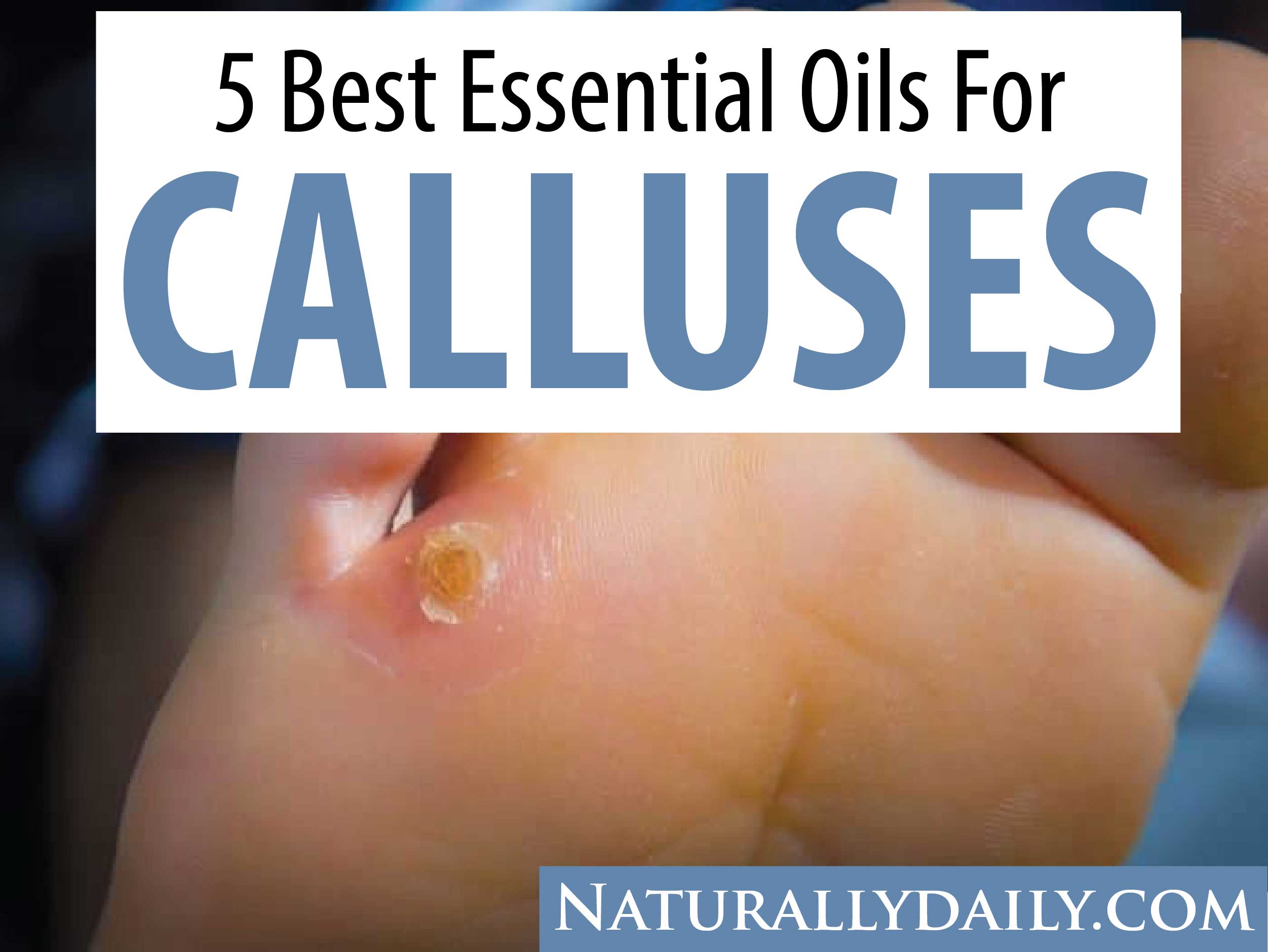Shin splints are the throbbing pain and ache felt in the front area of your leg and shinbone. The medial tibial stress syndrome usually occurs due to the stress on your shinbone and tissues that connect the muscles to the bones. [1]
Shin splints happen after extreme exercise, especially running. Athletes, runners, and military persons are the typical victim of this injury.
Having shin splints is painful but can be healed with proper treatment and rest. [2] You can also use some essential oils for shin splints to reduce the pain and inflammation in your legs.
Essential oils are a popular choice for reducing joint and muscle pain. In addition, some essential oils’ anti-inflammatory, analgesic, and anti-rheumatic properties can soothe pain and tenderness due to shin splints.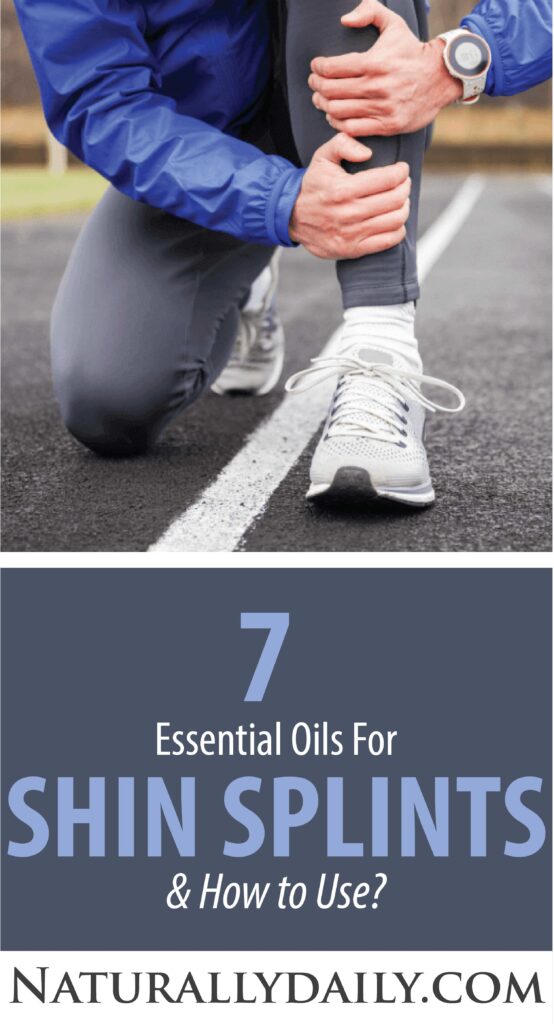
Causes & Symptoms of Shin Splints
The main reason for shin splints is the overuse of any physical activity such as running. Vigorous physical training that requires repetitive lower leg exercises can cause this condition. [3]
Some of the common reasons for shin splints are:
- Excessive running on uneven terrain, particularly on hills.
- Increasing the frequency of workouts.
- You have flat feet.
- You’re on military training.
- If you wear worn-out shoes while running.
- Working out on a hard surface.
Shin splints are pretty painful and frustrating. You may also find walking and doing your regular work difficult.
Some common symptoms of shin splints are:
- Pain in legs while walking or running.
- Sharp, throbbing pain in the front of your shin.
- Pain in joints and bones that gets worse after exercise.
- Bruises and small bumps on the shins.
- I can’t stand for an extended period without pain.
Essential Oils for Shin Splints
The essential oils mentioned here are safe and may soothe your pain and inflammation. But, they are complementary treatments and can’t be a replacement for your conventional treatment. Therefore, it’s recommended to ask a doctor before using essential oils.
1. Peppermint Essential Oil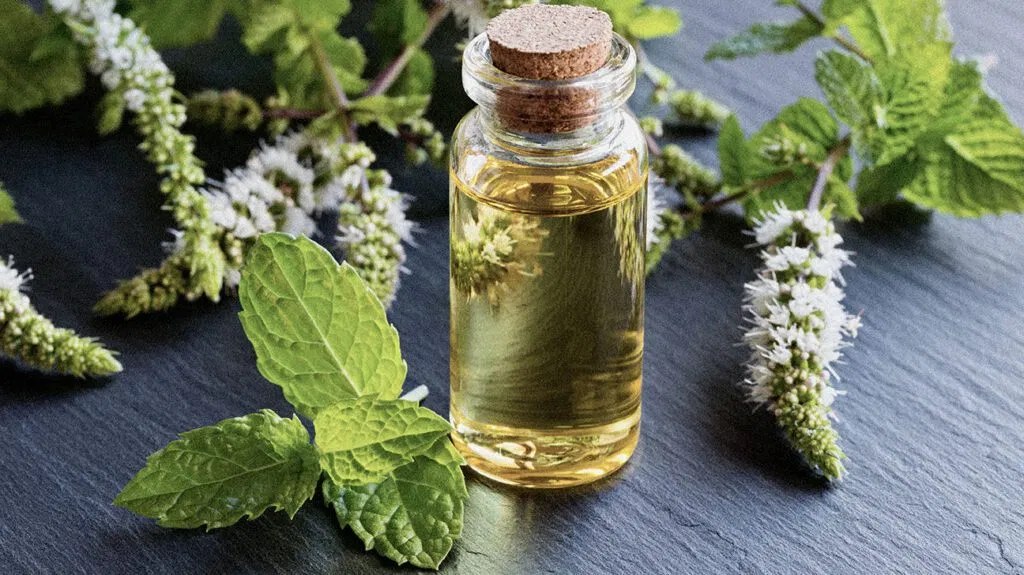
Peppermint oil is a popular choice for easing pain and aches. It’s an effective remedy for irritable bowel syndrome, including bloating and abdominal pain.
Menthol, an active component in peppermint, works as an antispasmodic and mild analgesic. Hence, this essential oil can ease IBS, headaches, and joint pain due to shin splints. [4]
How to use peppermint oil for shin splints:
- Mix 4-6 drops of peppermint oil with one tsp of olive or jojoba oil.
- Apply the oil to your affected area and massage for 5-20 minutes.
- Repeat the process as many times as you need.
Read More: 12 Health Benefits of Peppermint Oil + (How to Use It)
2. Lavender Essential Oil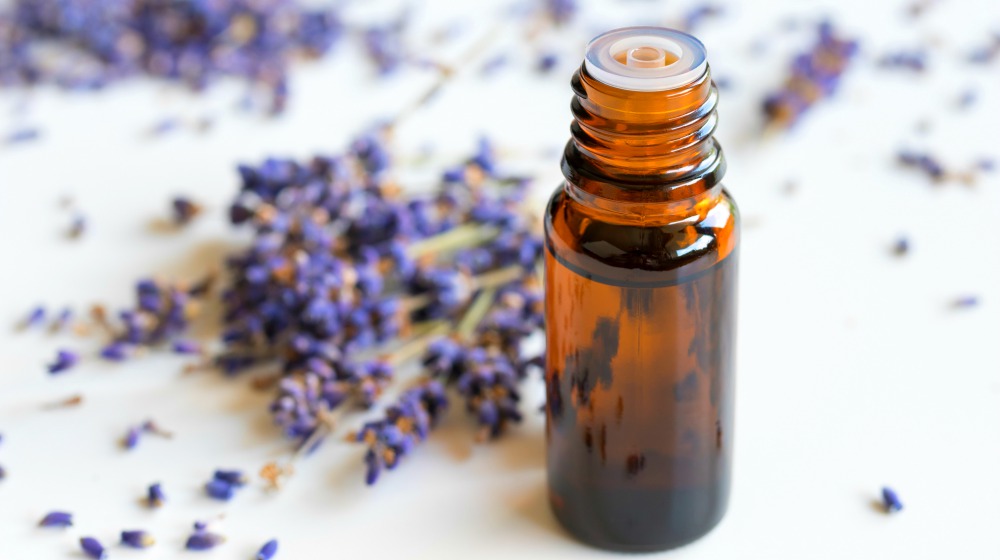
Lavender oil originates from the lavender plant (Lavandula Angustifolia). This oil is a mild but active sedative component that can also calm your mind.
Lavender oil has anti-inflammatory, antioxidant, and analgesic properties. It can relieve inflammation, joint pain, and sore muscles when used topically. [5]
If you have shin splints, this essential oil can ease the pain and swelling of your tired legs.
Learn how to use lavender oil for shin splints:
- Rub a few drops of lavender oil and take a deep breath. The aroma will soothe the pain and let you relax.
- Add 10-15 drops of lavender oil into your bathwater. Soak yourself in to ease the pain in your legs.
Read More: Lavender Oil for Hair Problems: 5 Ways to Use It
3. Juniper Essential Oil
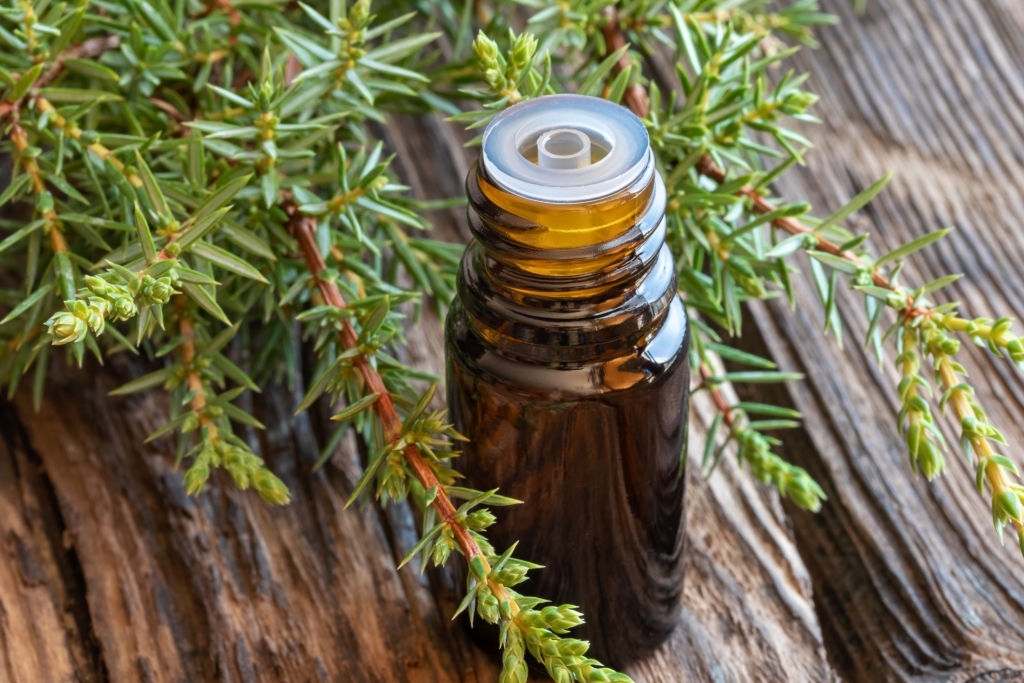
Juniper essential oil is a pain reducer, stress reliever, and detoxifying agent.
The oil contains antioxidant, antiseptic, anti-rheumatic, and analgesic properties. Therefore, it can reduce joint pain and inflammation due to shin splints. [6]
Here’s how you may use juniper oil for shin splints:
- Fill your tub with lukewarm water and pour 10-15 drops of juniper oil. Soak in the water and relax.
- Dilute 2-4 drops of juniper oil with jojoba or olive oil. Massage your affected area with the oil for 5-20 minutes.
4. Turmeric Essential Oil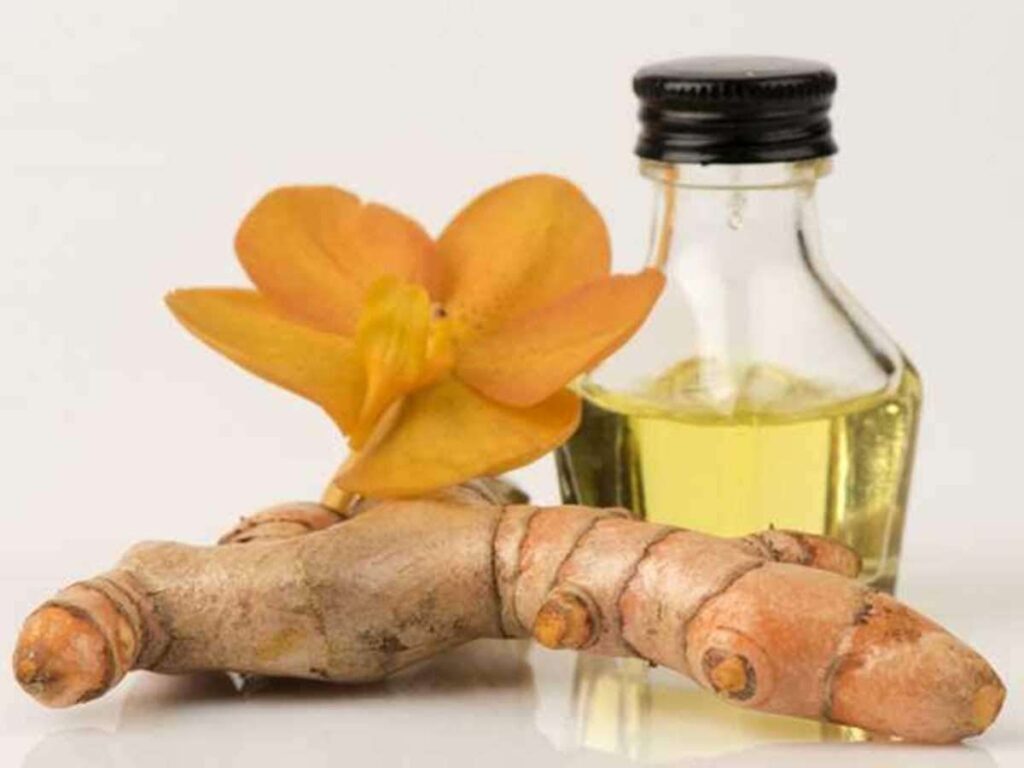
Turmeric is one of the most popular ingredients in Ayurvedic medicine because of its therapeutic value. The essential oil also contains potent medicinal properties. [7]
Turmeric essential oil is rich in antibiotic, anti-inflammatory, antiviral, antioxidant, and antimicrobial components. So, it can treat various pain due to arthritis, gout, shin splints, etc.
A simple way to use turmeric oil for shin splints:
- Take 4-6 drops of turmeric oil and dilute it with coconut, jojoba, or moringa oil.
- Massage the affected area for 5-20 minutes.
- For the best result, repeat this process two times per day.
5. Rosemary Essential Oil
Rosemary oil originates from the leaves and flowering tops of the rosemary plant (Rosmarinus officinalis). This essential oil can treat a wide array of ailments.
Rosemary oil is rich in anti-inflammatory and antispasmodic components. Carnosol, one of its crucial antioxidants, can reduce inflammation. [8]
If you have excruciating pain due to shin splints, rosemary oil can be a good choice.
Try this rosemary oil recipe for shin splints:
- Mix 3-6 drops of rosemary oil, 2-4 drops of peppermint oil, and 1 tsp of olive oil or coconut oil.
- Massage your affected area for 5-20 minutes.
Read More: Rosemary Oil: 13 Benefits and Uses for Skin, Hair, and Health
6. Clove Essential Oil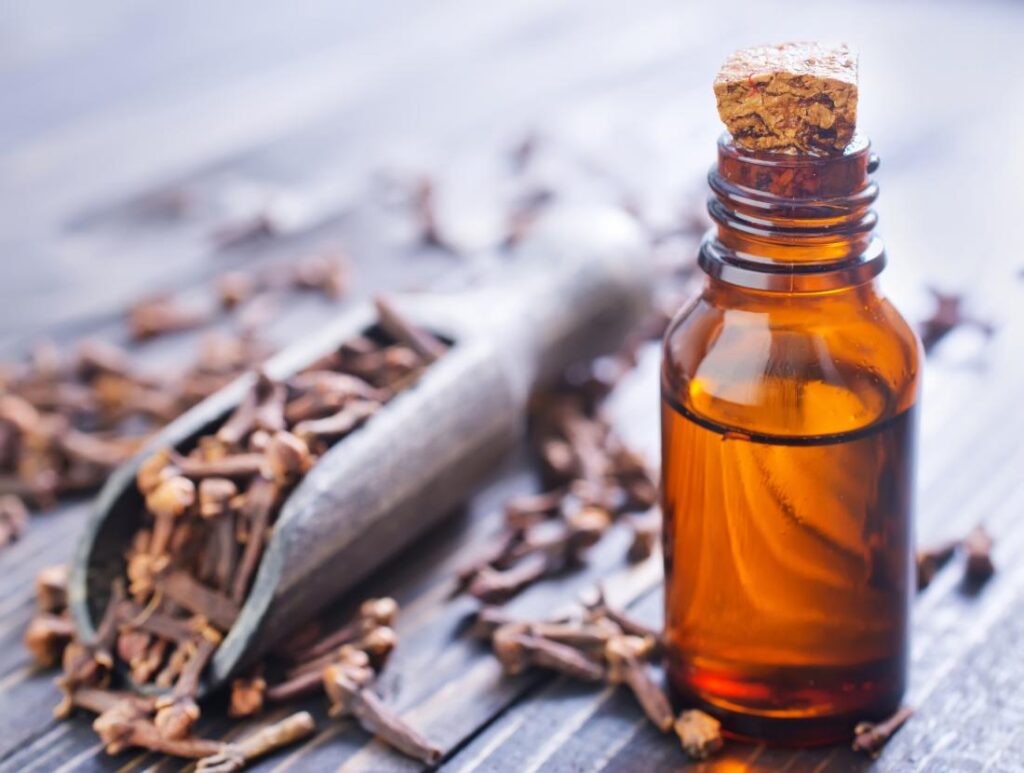
Clove oil is one of the most potent oils for pain relief. It can soothe the tired and ached muscles with its warming effects.
Clove essential oil is rich in antimicrobial and anti-inflammatory properties. It can soothe joint pain and inflammation because of shin splints. [9]
When applied to the skin, its mild anti-neuralgic effects can numb the area. So, it can temporarily relieve the pain.
How to use clove oil for shin splints:
- Mix 2-4 drops of clove oil with 1 tsp olive, jojoba, moringa, or coconut oil.
- Massage your affected leg with the oil for 5-20 minutes.
7. Thyme Essential Oil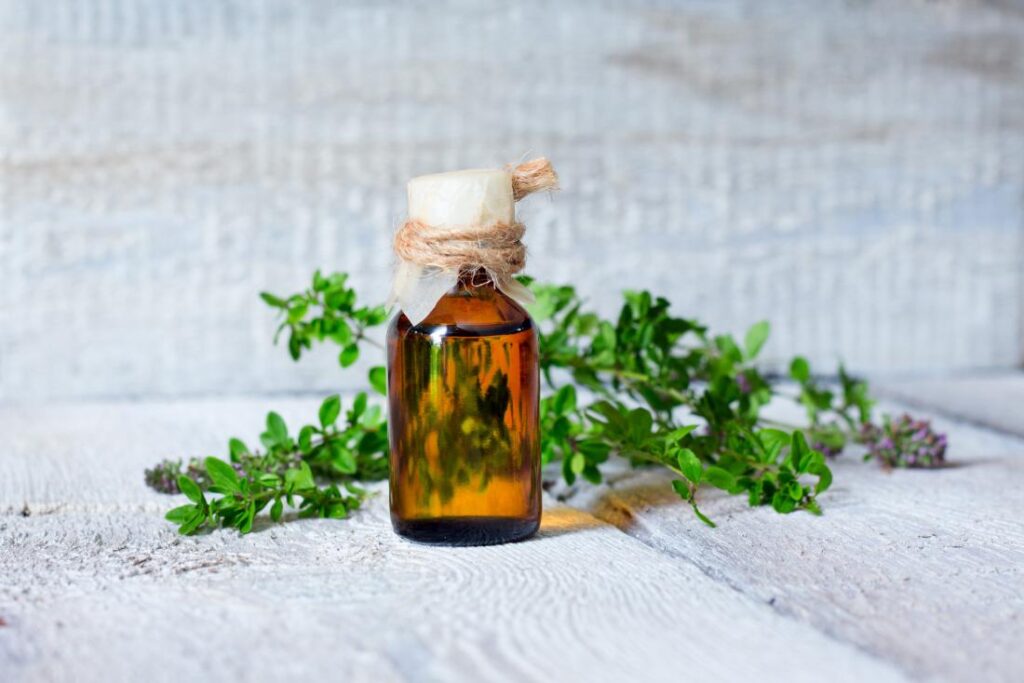
For many years, thyme essential oil has been treating muscle pain, soreness, and inflammation. This essential oil contains carvacrol. Hence, it can reduce inflammation in your body. [10]
Thyme oil is rich in antispasmodic and analgesic properties. So, it can reduce pain, aches, and sore muscle.
Here’s how you may use thyme oil for shin splints:
- Take 2-4 drops of thyme oil and combine it with 1 tsp of any carrier oil of your choice.
- Gently massage the affected area for 5-20 minutes.
- Mix 10-15 drops of thyme oil in your bath water. Soak in and relax.
Read More: How to Get Rid of Foot Cramps: 12 Natural Home Remedies
8. Frankincense Essential Oil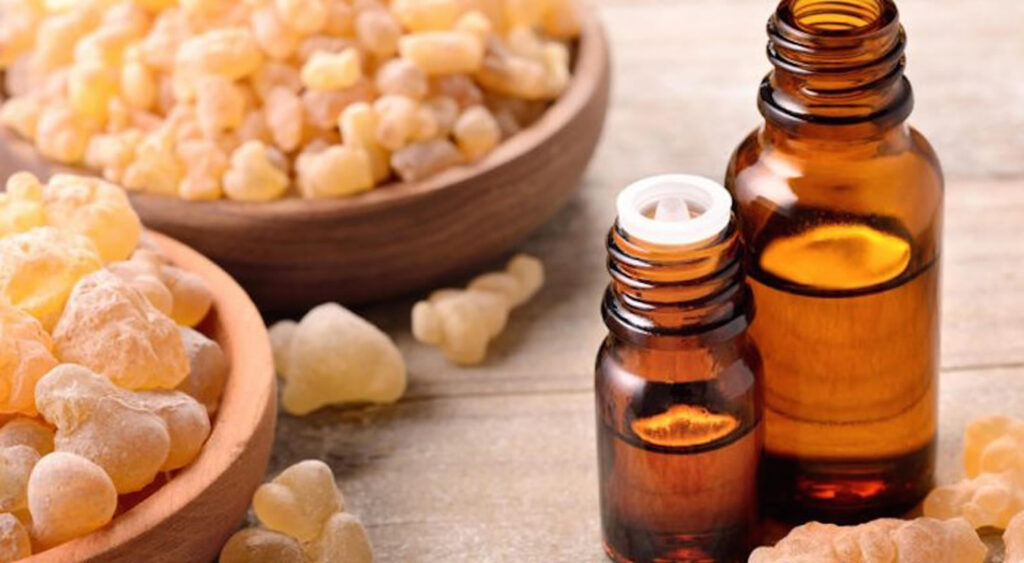
Frankincense essential oil is famous because of its wide array of therapeutic properties. [11]
It’s one of the most versatile essential oil that can treat many ailments. The oil contains anti-inflammatory, analgesic, anti-anxiety, antispasmodic, and antibacterial components.
Frankincense oil is quite gentle to be used on its own. But, it would help if you diluted it before using it.
This essential oil can treat sore muscle and swelling and reduce pain and inflammation from shin splints.
Learn how you can use frankincense oil for shin splints:
- Dilute 2-4 drops of frankincense oil with 1 tsp carrier oil. Then, gently massage the affected area.
- Pour 10-15 drops of frankincense oil into your warm bath water and soak in.
Read More: 12 Health Benefits of Frankincense Oil + How to Use It
Precautions While Using Essential Oils
Although natural, essential oils aren’t always considered safe. Proper use of these oils can give you a better result, whereas handing them the wrong way can do a disaster.
Always maintain the following precautions while handling essential oils:
- Essential oils like peppermint, juniper, and clove oils are pretty strong. So, you must always dilute them before topical application.
- Always do a patch test on the less sensitive part of your skin before using the oil. If it irritates, avoid using the oil.
- If you’re pregnant or a nursing mom, ask your doctor before using the oils.
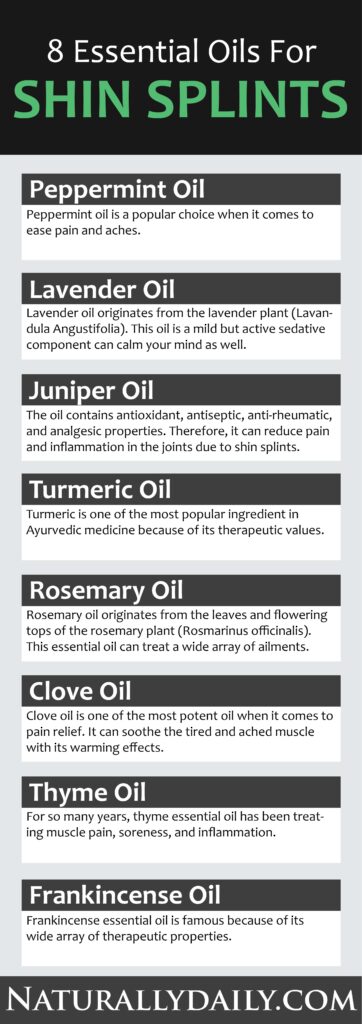
When to See a Doctor for Shin Splints?
Shin splints are a painful disorder. The pain usually goes away with proper rest. Essential oils may also help relieve the pain, but you need to see a doctor if the situation doesn’t improve.
Consult with a doctor if you have the following symptoms:
- Over-the-counter medication and home remedies don’t work.
- You have trouble walking.
- You have a feeling that you have fractures in the tibia or shinbone. Sometimes shin splints can mimic this condition. Thus it would help if you let a doctor diagnose.
Conclusion
Shin splints aren’t life-threatening but quite painful. The excruciating pain can hamper your regular life if you’re not careful.
Take proper rest and wear supportive shoes to ease the pain.
You can also try some essential oils to soothe the pain and inflammation.
But, seek medical attention immediately if these remedies do not work correctly.
Read Next: 10 Essential Oils for Athlete’s Foot + (How to Use Them)






